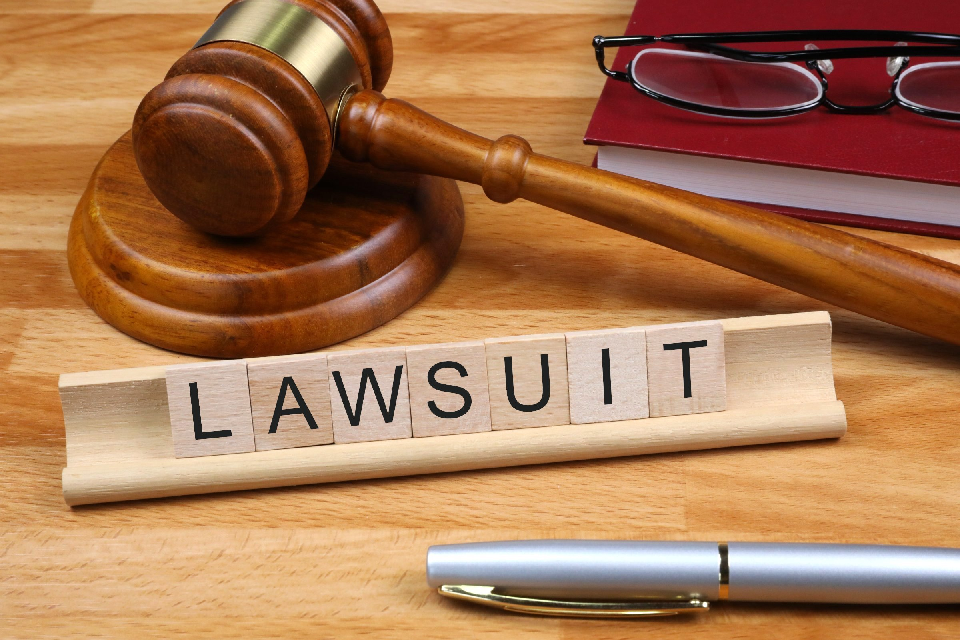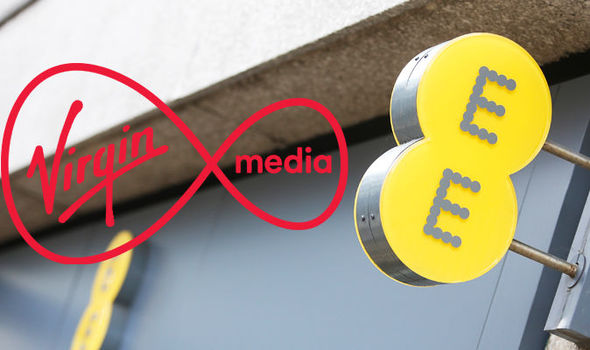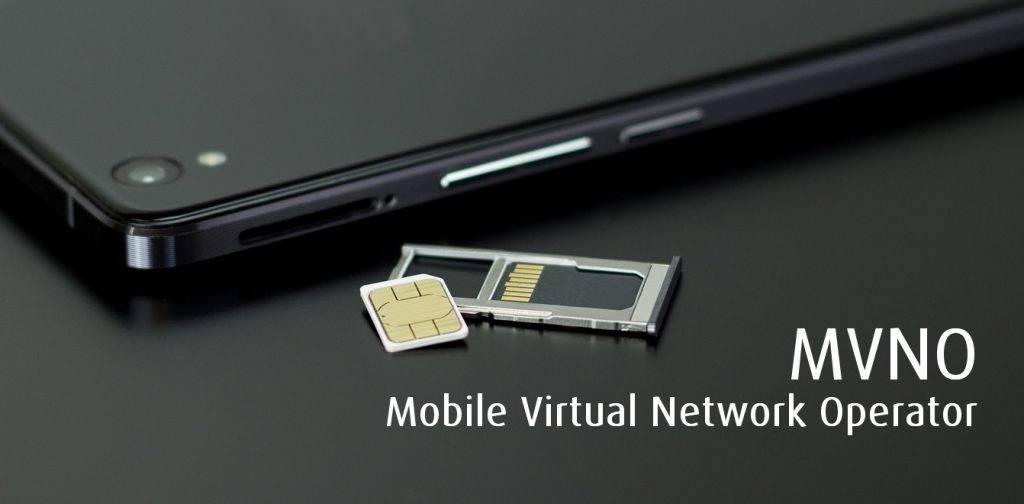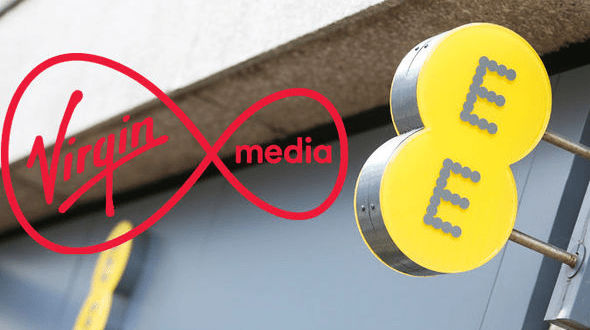Judge Dismisses EE’s £25M 5G Virgin Lawsuit
A Victory for Competition and Consumer Choice
In a landmark ruling, a judge has thrown out EE’s £25 million 5G contract lawsuit against Virgin Media, marking a significant victory for competition and consumer choice in the telecommunications industry. The legal battle, which had been closely watched by industry players and consumers alike, revolved around allegations of contract breaches and anti-competitive practices. This article delves into the background of the case, the arguments presented by both parties, the implications of the ruling, and its potential impact on the future of 5G deployment and competition in the UK’s telecommunications landscape.
Background of the Case
EE and Virgin Media are two major players in the United Kingdom’s telecommunications sector. Both companies have been fiercely competing to gain a stronghold in the emerging 5G market, with the technology promising faster data speeds, lower latency, and enhanced connectivity. As the demand for 5G services skyrocketed, telecom companies engaged in intense bidding wars to secure lucrative contracts with government agencies, businesses, and consumers.
In early 2022, EE filed a £25 million lawsuit against Virgin Media, alleging that the company engaged in unethical practices to win a 5G deployment contract that EE claimed should have been rightfully awarded to them. The suit accused Virgin Media of breaching the terms of the contract, engaging in anti-competitive behaviour, and lobbying officials to secure favourable treatment.

Arguments Presented by EE
EE’s legal team argued that they had submitted the most comprehensive and competitive bid for the 5G deployment contract. They contended that their proposal not only offered cutting-edge technology but also demonstrated a superior understanding of the specific needs and challenges faced by the project. According to EE, Virgin Media’s winning bid was based on misleading information, and the company had not fulfilled its contractual obligations to provide adequate network coverage and service quality.
Furthermore, EE claimed that Virgin Media had used its substantial financial resources to unfairly lobby government officials and regulators, creating an uneven playing field for competitors. EE contended that such anti-competitive practices stifle innovation, hamper technological progress, and ultimately harm consumers by limiting their choice of service providers.
Virgin Media’s Defense
In response to EE’s allegations, Virgin Media vehemently denied any wrongdoing. The company asserted that its bid had fully complied with the contract requirements and had been fairly evaluated and selected by the relevant authorities. Virgin Media’s legal team argued that their proposal offered a more cost-effective and efficient solution for the 5G deployment, which was a key factor in winning the contract.
Regarding the accusation of anti-competitive practices, Virgin Media maintained that they had engaged in no unethical behaviour. The company claimed that they had won the contract based on the merits of their proposal and the competitive advantage they could offer, rather than resorting to any underhanded tactics to gain an advantage.
The Court’s Ruling
After carefully examining the evidence and arguments presented by both parties, the judge presiding over the case rendered a significant decision. The court found that there was no concrete evidence to support EE’s claims of contract breaches or anti-competitive behaviour on the part of Virgin Media. The judge concluded that Virgin Media’s bid had indeed met the contractual requirements, and there was no indication of lobbying that compromised the integrity of the selection process.

Implications of the Ruling
The dismissal of EE’s £25 million lawsuit against Virgin Media has far-reaching implications for the telecommunications industry and consumers in the UK.
Boost to Competition
The ruling affirms the importance of healthy competition in the 5G market. With the lawsuit now resolved, both EE and Virgin Media can continue to compete based on innovation, service quality, and pricing, benefiting consumers with better offers and more options.
Encouraging Technological Advancements
The legal battle could have diverted resources and attention away from deploying and improving 5G infrastructure. Now that the lawsuit is behind them, both companies can concentrate on advancing their technology, further benefiting customers in the long run.
Regulatory Scrutiny
The lawsuit highlighted the need for strict regulatory oversight to ensure a fair and transparent bidding process for crucial infrastructure projects. The ruling may prompt authorities to review and strengthen their procedures for awarding contracts in the future.
Consumer Choice
With both EE and Virgin Media continuing to compete in the 5G market, consumers are likely to see improved service offerings, pricing, and coverage. This can lead to a more dynamic and customer-centric telecom industry.
Investor Confidence
The legal victory can boost investor confidence in Virgin Media, which may result in increased investment in the company’s expansion and infrastructure projects, ultimately benefiting consumers and the economy.

Future of 5G Deployment in the UK
The resolution of this high-profile legal dispute marks a pivotal moment for the 5G deployment landscape in the UK. As the technology continues to evolve and become more prevalent, telecom companies will continue to vie for lucrative contracts and market share. The ruling emphasizes the need for transparent and fair competition, ensuring that the best-suited companies win contracts based on merit and innovation.
Conclusion
The dismissal of EE’s £25 million 5G contract lawsuit against Virgin Media is a significant moment in the UK’s telecommunications industry. The court’s ruling reinforces the importance of fair competition, technological advancements, and consumer choice. Moving forward, the industry will need to focus on delivering cutting-edge 5G services to consumers and businesses, while regulatory authorities will likely strengthen their procedures to ensure a level playing field for all players in the market. Ultimately, this landmark case serves as a reminder that competition and innovation are critical drivers for progress in the fast-paced world of telecommunications.
By Abdul W Moghul
 MVNO MVNE MNO Mobile & Telecoms industry intelligence Telecoms Jobs, News and Business
MVNO MVNE MNO Mobile & Telecoms industry intelligence Telecoms Jobs, News and Business






